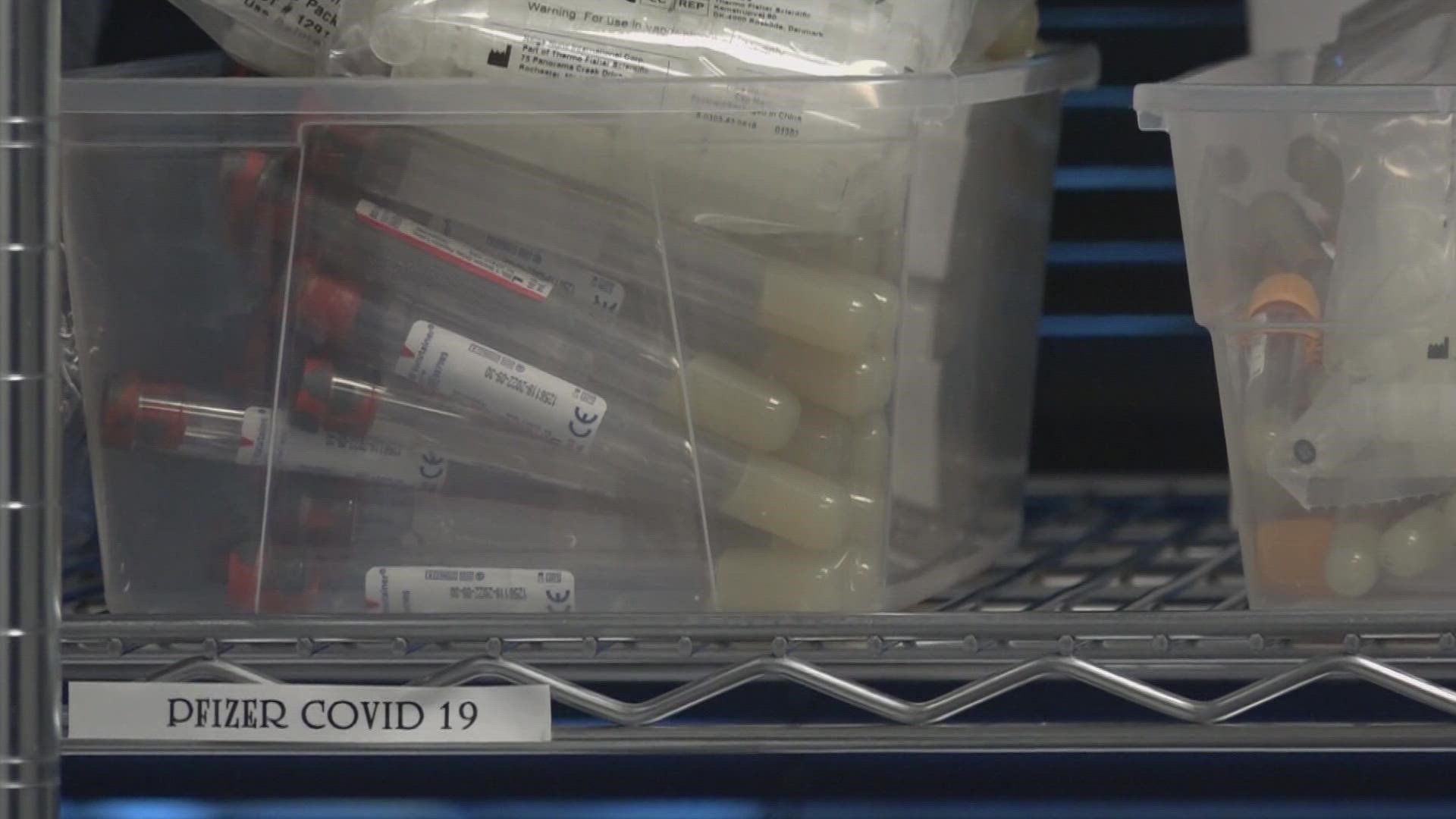CHESTERFIELD, Mo. — Inside the Clinical Research Professionals office in Chesterfield, there are still boxes of the COVID-19 kits that took so much attention over the past few years.
"It spread like wildfire," Director Marianne Tow said of their COVID vaccine trials. "We had people calling constantly every day."
They enrolled more Pfizer COVID trial patients than any other clinic in the country, with about 1,400 volunteers inquiring in a single day.
One of those volunteers was school nurse Cathy Hubert.
"I see kids eight hours a day with various illnesses, and you never know what's coming in so I was like, 'As soon as I can get a vaccine, I want to get a vaccine,'" she said of her interest.
Hubert received the vaccine though she wasn't sure during her initial participation whether she'd received the trial doses or a placebo.
She said her experience went so well, she now hopes to roll up her sleeve again as the clinic researches another illness that's plagued her student body for far longer: the flu.
"I think it was three or four years ago, I had over 80 students that got flu," she said of a typical flu season before coronavirus and face masks became a part of her job. "They were sick, and their parents were sick. It was awful. It took them down for at least a good week, and I don't want to go through that again."
Tow said the current flu vaccine takes up to six months to produce, so scientists have to take an educated guess at which strains will be most prevalent in a given year.
The Centers for Disease Control and Prevention measure seasonal flu vaccine effectiveness. Numbers since 2009 show efficacy percentages usually chart in the 30s and 40s, though the 2014-15 year produced an efficacy rate as low as 19%.
But Tow said mRNA, the technology used in Pfizer and Modern's COVID vaccines, could change that.
"Because the mRNA [vaccine] can be made much faster, then they can wait longer to make those decisions on what strains they are going to put in the vaccine," she said. "Hopefully that will make it a more efficacious vaccine for the community."
Tow said the clinic's already got a long list of COVID trial participants raising their hands for the next opportunity.
"A lot of the folks that were in the COVID vaccine study have been telling us for months 'What else are you gonna have?' 'What else do you have?' 'If there is anything else, make sure that I am the first one you call,'" she said, listing the common questions and comments.
Hubert said she's on the list again, ready to re-enroll.
"Sign me up! Sign me up right away," she said. "If this vaccine has greater efficacy and if it works better than the old technology, let's go for it."
For information on the mRNA flu vaccine trials, visit clinicalresearchprofessionals.net.

